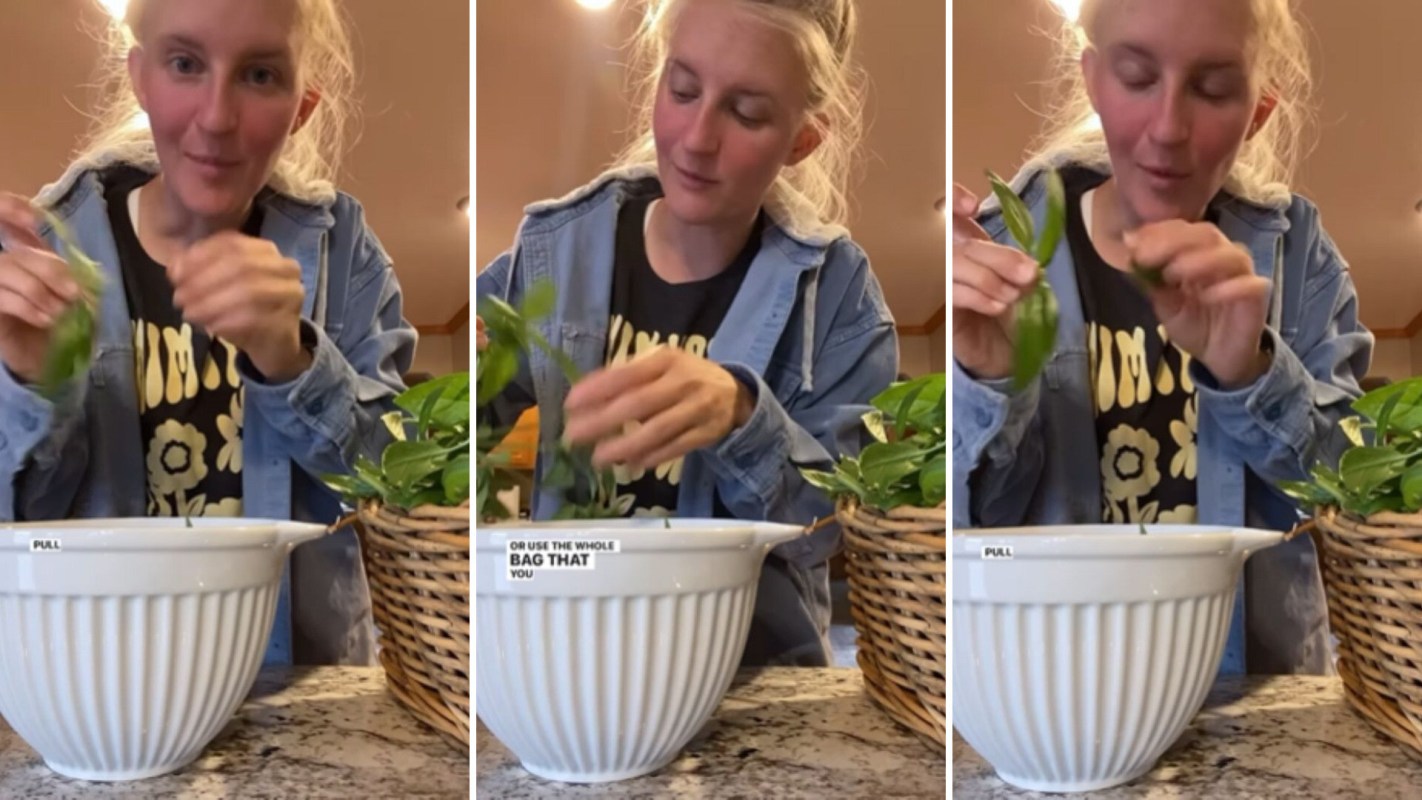A homesteader is sharing a creative way to preserve basil on her Instagram channel.
Although this culinary herb is native to central Africa and Southeast Asia, it is harvested and used in cuisines throughout the globe. Learning how to best preserve it can effectively reduce food waste while enriching your food.
The scoop
The Instagrammer, who goes by the name of Emily (@nurturingacres) and shares Reels about homesteading, homeschooling, self-sufficiency, and mason jars, shows viewers what they can do with the basil they just harvested from their garden.
"I tried all the ways last year and this was the true winner," she wrote in the caption.
The video begins with Emily showing us a basket full of basil leaves. She goes on to explain how we should first pull all the leaves off the stem, doing so herself and placing the leaves into a large bowl.
"For every three cups of basil you´re gonna add about a tablespoon of olive oil to help coat the leaves, prevent freezer burn, then just pop it in the freezer."
The frozen basil leaves can be used to make pesto and other delicious dishes.
How it's helping
Making your own spices from plants grown in your garden is a great way to save money and prevent environmental damage associated with store-bought items.
The basil you buy at the supermarket, depending on where you live, is often either wrapped in plastic or placed in a plastic container.
According to UNESCO, about 80% of all the pollution found in the ocean is composed of plastic, which generally takes hundreds of years and often ends up in the bodies of aquatic animals like whales, sea turtles, and dolphins.
Another benefit of growing your own spices (and veggies, as well) is that doing so requires having a garden instead of a traditional grass lawn. One reason this is a better alternative is because gardens help remove the planet-warming carbon pollution from our atmosphere, much more than regular grass.
Also, gardens save much more water than the more commonly adopted grass lawns, and there are long-term financial benefits to producing your own foods and spices.
What everyone's saying
One commenter had a few questions. "Is it dry? Fresh picked? Not washed? I want to do this. Just double checking the process. I have a ton of basil."
Emily answered by stating that the basil was "fresh picked" and that "you could wash & dry if you want, but I usually don't and just rinse off any visibly dirty pieces or don't use the parts heavily eaten by bugs."
Another person added how "an Italian restaurant near me does basil orange juice, and I'm not gonna lie, it's delicious. You should try it out!"
Join our free newsletter for easy tips to save more, waste less, and help yourself while helping the planet.









